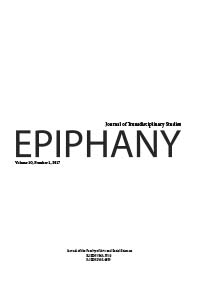Psychogeography and the Victims of the City in McInerney’s Bright Lights, Big City
Psychogeography and the Victims of the City in McInerney’s Bright Lights, Big City
Author(s): Pouria Torkamaneh, Pedram LalbakhshSubject(s): Comparative Study of Literature, Theory of Literature
Published by: International University of Sarajevo
Keywords: Psychogeography; McInerney; Bright Lights, Big City; Urbanity; Postmodern fiction;
Summary/Abstract: The present article approaches Jay McInerney’s Bright Lights, Big City (1984) in light of Merlin Coverley’s concept of psychogeography to demonstrate the direct authority of the city as an integral part of the protagonist’s persona. The idea is to emphasize that urbanity, in its postmodern sense, can function as a culpable agent in shaping up the protagonist’s behavior and determining his fate. Therefore, this research studies McInerney’s Bright Lights, Big City to reveal how the life of the leading character–with his unstable state of mind–takes root primarily in his chaotic living environment. A psychogeographic evaluation of this novel allows us to see that urbanity influences the protagonist’s psyche, who evinces this deep impact through wandering in the metropolitan Manhattan. Further, this research demonstrates how the city remains triumphant as the protagonist falls into disease and alienation, or is left with an aporetic moment of decision: to unify with the force of urbanity or lose everything to its power.
Journal: Epiphany. Journal of Transdisciplinary Studies
- Issue Year: 10/2017
- Issue No: 1
- Page Range: 8-18
- Page Count: 11
- Language: English

